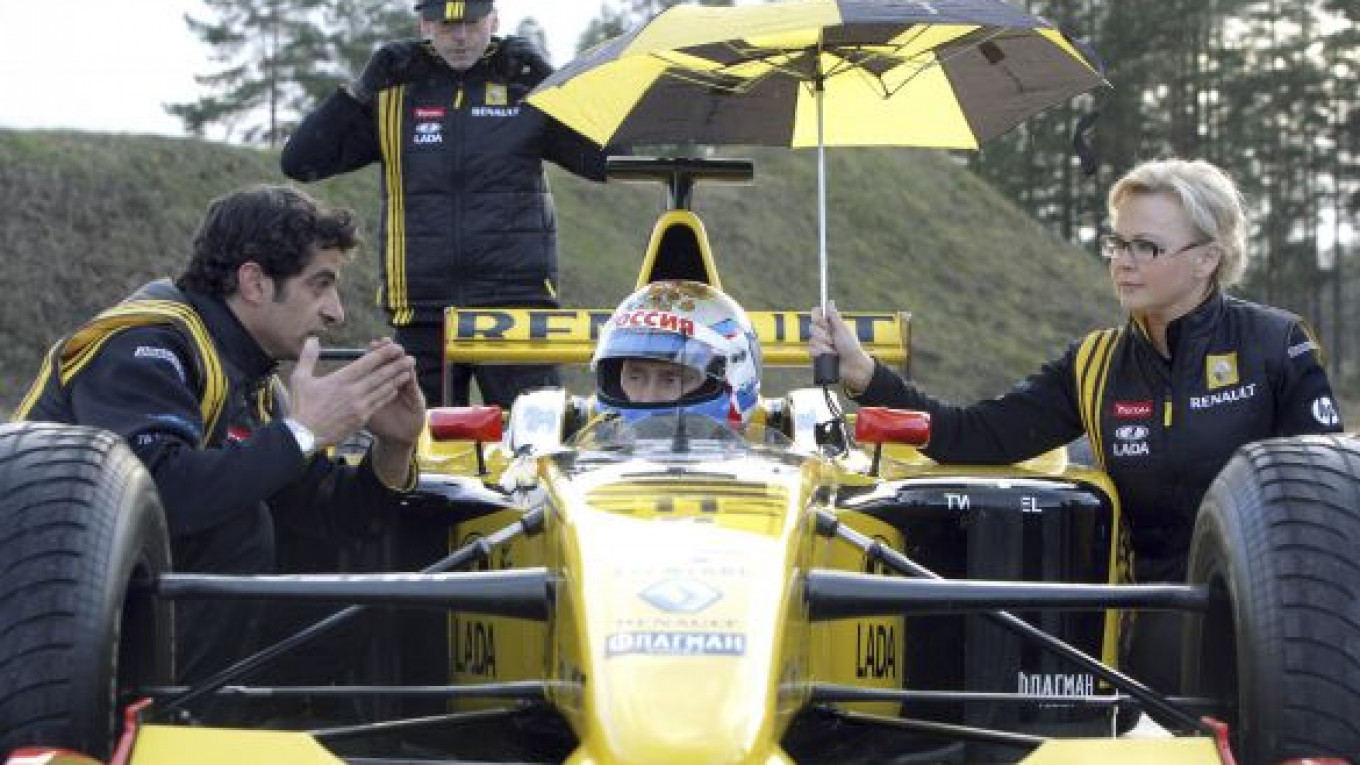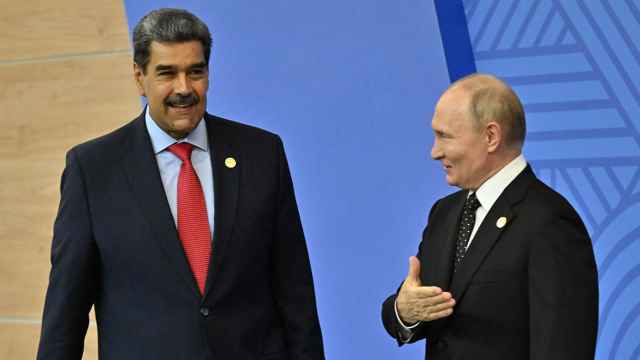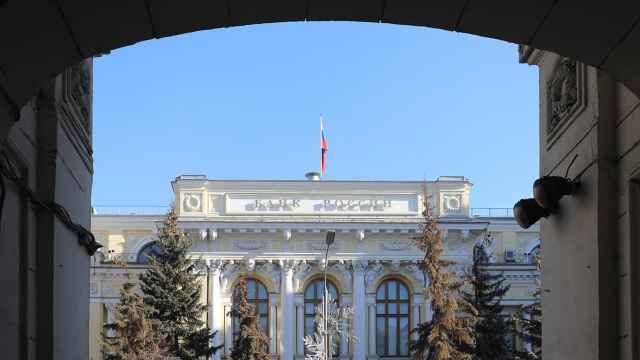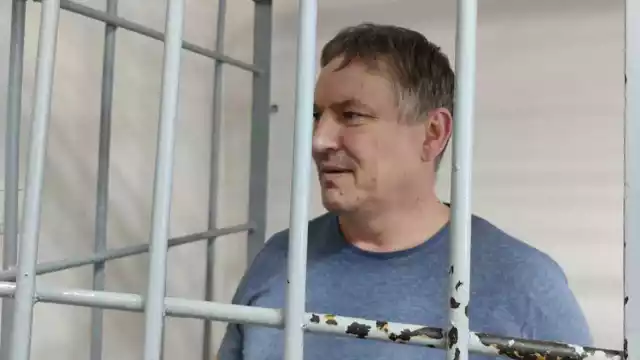Carlos Ghosn's negotiations to take control of AvtoVAZ may be the Renault-Nissan alliance's final opportunity to grab the leading position in one of the four largest growth markets.
"It's their last-chance saloon for getting into emerging markets in a meaningful fashion," said Erich Hauser, an analyst with Credit Suisse in London. "If they get Russia right, they'll be starting from a position of strength."
Ghosn, who heads Renault and Nissan Motor, needs Russia because mature markets are stagnating and the remaining three biggest emerging markets already have dominant overseas carmakers. Volkswagen is the biggest in China, Fiat is the largest in Brazil, and Suzuki Motor leads in India.
The CEO estimates that Russian auto sales will reach 4 million by 2015, and he aims for 40 percent of those deliveries by taking over AvtoVAZ and expanding production by 700,000 vehicles. Nine-month sales gained 18 percent to 1.32 million, according to data from the country's Association of European Businesses.
Renault-Nissan is in talks with Troika Dialog and state-owned Russian Technologies, which each hold 25 percent of AvtoVAZ, to take a controlling stake in the country's largest carmaker at the urging of Prime Minister Vladimir Putin, Ghosn said last week. Renault-Nissan owns 25 percent, valued at 12.4 billion rubles ($410 million).
"Renault-Nissan gets political backing, a strong Russian brand and arguably a license to dominate the market," said Max Warburton, a London-based Sanford C. Bernstein analyst who has an "outperform" recommendation on Renault. "Ghosn's investment looked like Russian roulette in 2009 but could prove pretty lucrative in coming years."
The Russian auto market, after plunging 50 percent last year, is recovering with the help of government incentives and may overtake Germany to become Europe's biggest by 2015, analysts predict. Renault-Nissan is in pole position to harness that growth in tandem with AvtoVAZ, whose Lada badge is on every four cars sold in Russia.
Renault's plan to dominate Russian sales after receiving the government's blessing follows a playbook that rivals have used to gain leading footprints in other emerging markets.
VW owes its lead in China to a successful encounter with a visiting Chinese delegation in the 1970s, said Christoph Stuermer, a Frankfurt-based analyst at IHS Automotive. Europe's biggest carmaker now claims more than 11 percent of Chinese vehicle sales, according to IHS data. Suzuki, once invited to rescue Indian carmaker Maruti, now dominates that market with a 36 percent share.
Renault plant investments in Brazil and Argentina have not loosened Fiat's grip on the Latin American market, with a 24 percent market share, compared with less than 5 percent for Renault-Nissan, according to IHS. The alliance is the sixth-biggest carmaker in China and 10th-largest in India.
AvtoVAZ leads the Russian market with a 28 percent share, while Renault-Nissan has 9 percent. Ghosn's potential empire would have a commanding 37 percent of sales.
"Renault hasn't done very well in India, and Brazil is dominated by VW and Fiat," said Philippe Houchois, an analyst at UBS in London, who has a "buy" rating on Renault. "That leaves Russia as the only large emerging market where they still have potential to do something big."
Renault and its 43 percent-owned Japanese affiliate are already upgrading AvtoVAZ's sprawling Tolyatti plant with a new production line that will raise capacity to 900,000 cars and begin assembling a new Lada model in 2012, based on Renault's no-frills Logan range. Renault and Nissan vehicles will follow later that year.
The AvtoVAZ revamp "could easily deliver operating margins in excess of 10 percent" on revenue of 5.2 billion euros ($7.4 billion), lifting Renault's earnings by 50 cents per share on the basis of its current 25 percent stake, Warburton estimated.
The investment also brings risks, as Renault pushes to improve efficiency at AvtoVAZ. The French carmaker's managers were marginalized once before, until the sales collapse led to the ouster of its last Russian CEO. Russia's sales subsidies may also mask AvtoVAZ's urgent need for new models across the board.
"How it will look after incentives run out is anyone's guess," said Hauser, from Credit Suisse. "I struggle to see how they can continue to sell any of the current Lada product for another five years."
Until recently, Ghosn resisted Putin's calls to increase the AvtoVAZ stake Renault bought for $1 billion in 2008. Instead of providing more cash, the French carmaker contributed equipment and technology worth more than $300 million. Renault also declined to raise its holding even as the government injected 40 billion rubles ($1.3 billion) into AvtoVAZ to pay off debt accrued during the 2009 crisis.
Renault spokeswoman Axelle de Ladonchamps declined to comment on the details of the negotiations. French daily Liberation reported Nov. 2 that Russia threatened to dilute Renault's existing stake unless Ghosn bought a bigger holding. Most of AvtoVAZ's crisis debt is held by Moscow in the form of notes that can be converted into stock.
The proposal to raise the alliance's holding to 50 percent plus one share came from Putin, Ghosn said after talks between the two men in Moscow last week.
"A government invitation like this one cannot be ignored," Stuermer said. Doing business with a sovereign state "might make things more complicated early on, but when it's firmly bedded down it can be the start of a very long and profitable relationship."
A Message from The Moscow Times:
Dear readers,
We are facing unprecedented challenges. Russia's Prosecutor General's Office has designated The Moscow Times as an "undesirable" organization, criminalizing our work and putting our staff at risk of prosecution. This follows our earlier unjust labeling as a "foreign agent."
These actions are direct attempts to silence independent journalism in Russia. The authorities claim our work "discredits the decisions of the Russian leadership." We see things differently: we strive to provide accurate, unbiased reporting on Russia.
We, the journalists of The Moscow Times, refuse to be silenced. But to continue our work, we need your help.
Your support, no matter how small, makes a world of difference. If you can, please support us monthly starting from just $2. It's quick to set up, and every contribution makes a significant impact.
By supporting The Moscow Times, you're defending open, independent journalism in the face of repression. Thank you for standing with us.
Remind me later.






